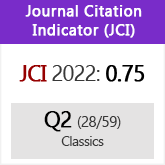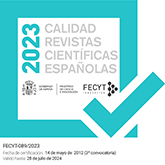Mito e storia nella mitografia di età imperiale: Lico πολέμαρχος (Apollod., Bibl. III 41)
DOI:
https://doi.org/10.3989/emerita.2019.13.1915Palabras clave:
Mitografia, polemarchia, Tebe, Lico, genealogie, Pseudo-ApollodoroResumen
[it] Il racconto della conquista del potere a Tebe da parte di Lico, fornito dalla Biblioteca, presenta alcuni elementi che sembrano far riferimento a istituti propriamente politici. L’elezione a polemarco, in particolare, può alludere a eventi storici della Beozia di IV secolo a. C. Tale allusione rappresenta un chiaro anacronismo rispetto all’universo che fa da sfondo ai racconti del mitografo, ma, in questo caso, non risulta estranea allo sviluppo narrativo della sezione in cui si trova inserita. Evidenziando una differenza qualitativa tra la sovranità legittima dei Cadmei e quella illegittima di Lico, Zeto e Anfione, il riferimento alla polemarchia contribuisce al piano compositivo dello ps. Apollodoro, che si fonda sulla continuità genealogica. Per tale ragione, l’anacronismo può essere qui considerato il risultato di una scelta autoriale, che mostra come anche i mitografi abbiano giocato un ruolo nell’iterazione tra tempo mitico e passato storico che si riscontra all’interno delle loro opere.
Descargas
Citas
Acerbo, S. 2019: Le tradizioni mitiche nella Biblioteca dello ps. Apollodoro. Percorsi nella mitografia di età imperiale, Amsterdam.
Bearzot, C. 2003: «Il concetto di dynasteia e lo stato ellenistico», in Bearzot, C., Landucci, F. e Zecchini G. (eds.), Gli stati territoriali nel mondo antico, Milano, pp. 1-24.
Berman, D. W. 2004: «The Double Foundation of Boiotian Thebes», TAPA 134, pp. 1-22. https://doi.org/10.1353/apa.2004.0002
Bertolini, F. 1996: «La Guerra di Troia: una vicenda esemplare» in Settis, S. (ed.), I Greci: storia, cultura, arte, società, 2 Una storia greca, 1 Formazione, Torino, pp. 1211-1230.
Brillante, C. 1979-80: «Apollod. Bibl. III 5,5», RCCM 21-22, pp. 195-198.
Buck, R. J. 1979: A History of Boeotia, Alberta.
Buckler, J. e Beck, H. 2008: Central Greece and the Politics of Power in the fourth Century B. C., Cambridge. https://doi.org/10.1017/CBO9780511482717
Collard, Ch. e Cropp, M. 2008: Euripides, Volume VII, Fragments, Aegeus-Meleager, Harvard.
Delattre, C. 2013: «Pentaméron mythographique. Les grecs ont-ils écrit leurs mythes?», Lalies 33, pp. 77-170.
Delattre, C. 2018: «Périégèse et exégèse: l'exemple de Pausanias», in Delattre, C. e Valette, E. (eds.), Pragmatique du commentaire: mondes anciens, mondes lointains, Turnhout, pp. 313-344.
Dowden, K. 1992: The Uses of Greek Mythology, Londra-New York. https://doi.org/10.4324/9780203316269
Fletcher, K. F. B. 2013: «Hyginus' Fabulae: Toward a Roman Mythography», in Trzaskoma, S. M. e Smith, R. S. (eds.), Writing Myth. Mythography in the Ancient World, Lovanio-Parigi-Walpole (MA), pp. 133-164.
Fowler, R. L. 2013: Early Greek Mythography. Volume 2: Commentary, Oxford.
Fowler, R. L. 2017: «Apollodorus and the Art of the Variant», in Pàmias, J. (ed.), Apollodoriana. Ancient Myths, New Crossroads, Berlino-Boston, pp. 158-175. https://doi.org/10.1515/9783110545326-011
Gantz, T. 1993: Early Greek Myth: a Guide to Literary and Artistic Sources, Baltimora.
Gasti, F. 2017: Igino. Miti del mondo classico, Sant'Arcangelo di Romagna.
Godhill, S. 2009: «The Anecdote: Exploring the Boundaries between Oral and Literate Performance in the Second Sophistic», in Johnson, W. A. e Parker, H. N. (eds.), Ancient Literacies. The Culture of
Readings in Greece and Rome, Oxford.
Harris, E. M. 2006: «Antigone the Lawyer, or the Ambiguities of Nomos», in Harris, E. M. e Rubinstein, L. (eds.), The Law and the Courts in Ancient Greece, Londra, pp. 19-56.
Jouan, F. e Van Looy, H. 1998: Euripide. Tome VIII. Fragments 1re partie. Aigeus-Autolykos, Parigi.
Jourdain-Annequin, C. 1985: «Héraclès, latris et doulos. Sur quelques aspects du travail dans le mythe héroïque», DHA 11, pp. 486-538. https://doi.org/10.3406/dha.1985.1673
Kuch, H. 2011: «Positionen in der Antiope des Euripides», AAntHung, 51, pp. 408-411. https://doi.org/10.1556/AAnt.51.2011.3-4.1
Morgan, C. 2009: «The Early Iron Age», in Raaflaub, K. A. e van Wees, H. (eds.), A Companion to Archaic Greece, Maiden-Oxford, pp. 43-63.
Papathomopulos, M. 2010: ???????Ω??? ??????????. Apollodori Bibliotheca post Richardum Wagnerum recognita, Atene.
Raaflaub, K.A. 1997: «Homeric Society», in Morris, I. e Powell, B. B. (eds.), A New Companion to Homer, Leida, pp. 624-648.
Roesch, P. 1965: Thespies et la Confédération Béotienne, Parigi.
Scarpi, P. e Ciani, M. G. 1996: Apollodoro, I Miti Greci (Biblioteca), Milano.
Schachter, A. 2016: «Toward a Revised Chronology of the Theban Magistrates' Coins», in Gartland, S. D. (ed.), Boiotia in the fourth Century B.C., Philadelphia, pp. 43-58. https://doi.org/10.9783/9780812293760-005
Schaefer, H. 1956: «Polemarchos», RE suppl. 8, coll. 1108-1117, Stoccarda.
Small, J. P. 1997: Wax Tablets of the Mind. Cognitive Studies of the Memory and Literacy in Classical Antiquity, Londra-New York.
Talamo, C. 1979: La Lidia arcaica: Tradizioni genealogiche ed evoluzione istituzionale, Bologna.
Trzaskoma, S. M. 2013: «Citation, Organization and Authorial Presence in Ps. Apollodorus' Bibliotheca», in Trzaskoma, S. M. e Smith, R. S. (eds.), Writing Myth: Mythography in the Ancient World, Lovanio-Parigi-Walpole, pp. 75-94.
Ulf, C. 2009: «The World of Homer and Hesiod», in Raaflaub, K. A. e van Wees, H. (eds.), A Companion to Archaic Greece, Maiden-Oxford, pp. 81-99. https://doi.org/10.1002/9781444308761.ch5
Wagner, R. 1926: Apollodori Bibliotheca. Apollodori Bibliothecae Epitoma ex epitoma Vaticana et fragmentis Sabbaiticis composita. Pediasimi libellus de duodecim Herculis laboribus, Lipsia.
West, M. L. 1985: The Hesiodic Catalogue of Women. Its Nature, Structure, and Origins, Oxford.
Wohl, V. 2014: «Comedy and Athenian law», in Revermann, M. (ed.), The Cambridge Companion to Greek Comedy, Cambridge, pp. 322-335. https://doi.org/10.1017/CCO9781139015356.022
Descargas
Publicado
Cómo citar
Número
Sección
Licencia
Derechos de autor 2019 Consejo Superior de Investigaciones Científicas (CSIC)

Esta obra está bajo una licencia internacional Creative Commons Atribución 4.0.
© CSIC. Los originales publicados en las ediciones impresa y electrónica de esta Revista son propiedad del Consejo Superior de Investigaciones Científicas, siendo necesario citar la procedencia en cualquier reproducción parcial o total.Salvo indicación contraria, todos los contenidos de la edición electrónica se distribuyen bajo una licencia de uso y distribución “Creative Commons Reconocimiento 4.0 Internacional ” (CC BY 4.0). Puede consultar desde aquí la versión informativa y el texto legal de la licencia. Esta circunstancia ha de hacerse constar expresamente de esta forma cuando sea necesario.
No se autoriza el depósito en repositorios, páginas web personales o similares de cualquier otra versión distinta a la publicada por el editor.














